BOMBAY STARTUP TRILLION DOLLAR TECH ECOSYSTEM
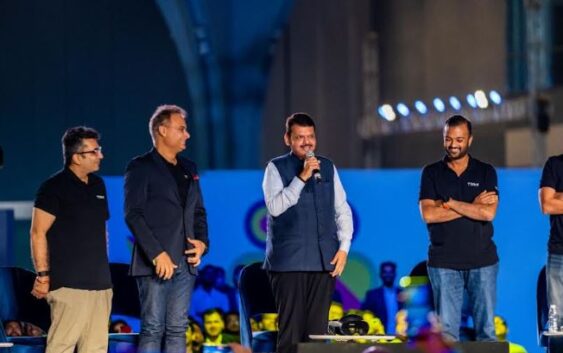
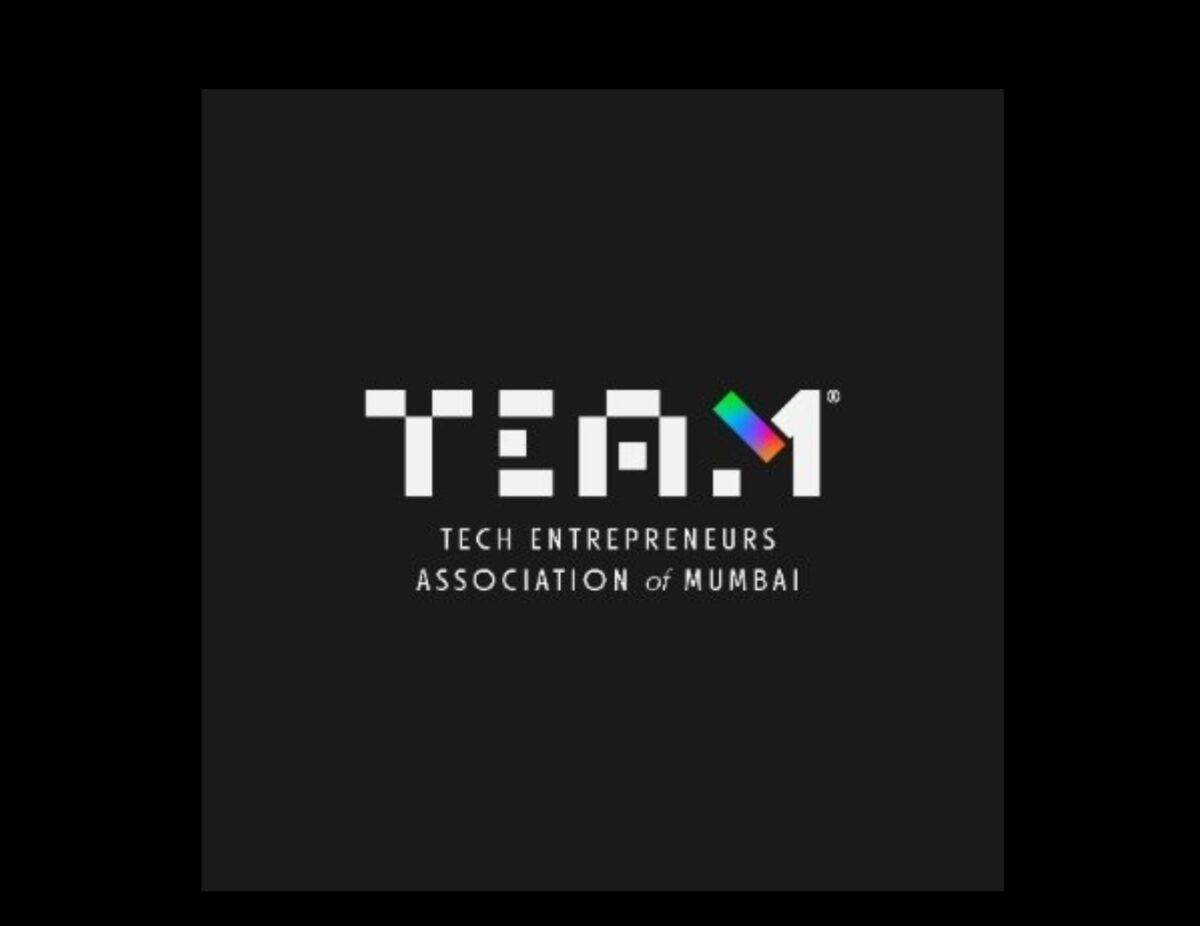
TEAM, or the Tech Entrepreneurs Association of Mumbai is strongly working towards making Mumbai, currently India’s third-largest startup cluster, after Bengaluru and Delhi NCR, with a mission to advance Mumbai’s tech ecosystem
The Mumbai Tech Week (MTW) is the first public event, and TEAM hopes this is the first of many similar demonstrations of the city’s startup ecosystem. Although the organisation has been quietly working with the Maharashtra government to support entrepreneurs in the city, this is the first time it has happened publicly.
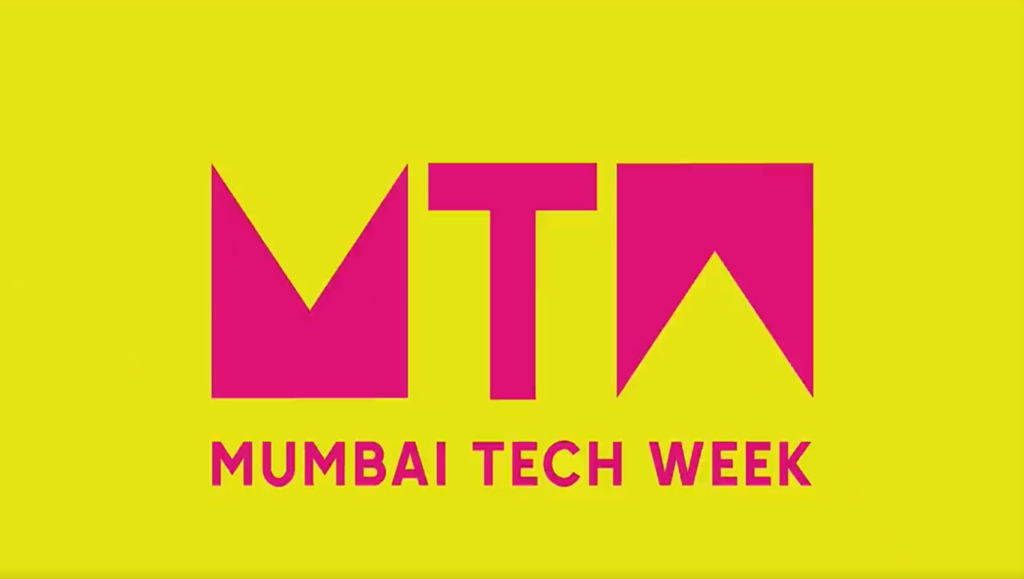
The first tangible move was Mumbai Tech Week, which took place from 18–23 February 24, little over a year after TEAM was established, to honour and commemorate the vibrant IT and startup ecosystem and community in the city. MTW consisted of networking, business acumen, industry knowledge, and cooperative learning.
TEAM, which was announced in November 2022, is made up of listed businesses, venture capital firms, and soonicorn and unicorn startups from Mumbai. The first opportunity to exhibit the work TEAM has completed over the last 15 months was at Mumbai Tech Week.
During its two main event days, MTW hosted some of the most well-known figures in the fields of policymakers, tech entrepreneurs, corporates, investors, and the media. These included Smriti Irani, the Hon’ble Minister of Women & Child Development and Minority Affairs, the Government of India; Rajeev Chandrasekhar, the Hon’ble Minister of State for Electronics and Information Technology, the Government of India; Amitabh Kant, the G20 Sherpa, the Government of India; Ashish Chauhan, NSE; Mohit Joshi, Tech Mahindra; Sandhya Devanathan, Meta India; Puneet Chandok, Microsoft India & South Asia; Sanjay Gupta, Google India; Jay Kotak, Kotak811, and 46 Mumbai Tech unicorn and soonicorn founders.
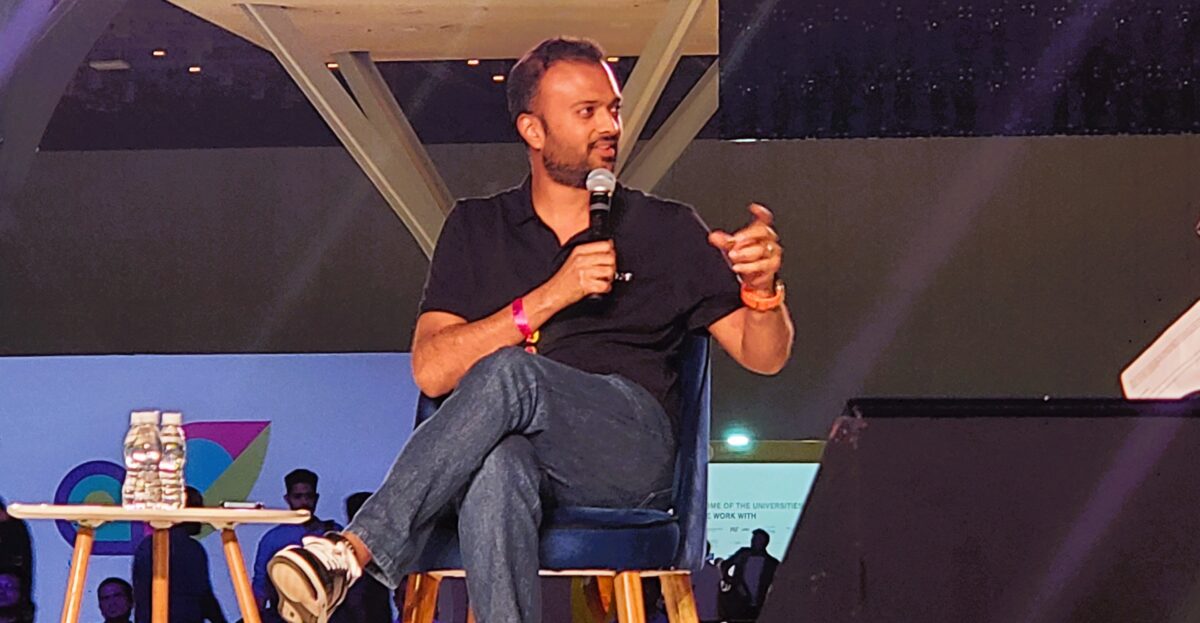
Dream11 founder and CEO Harsh Jain said, “Firstly, it’s not about competition with Bengaluru or Delhi. If we have to make India into a trillion-dollar digital economy, we need Mumbai to rise. Not just Mumbai, we also need Chennai or Hyderabad or Pune because it’s not going to happen with just Bengaluru and Delhi as the startup hubs.”
Recently Harsh Jain, Culture Enforcement Officer (CEO) and Co-Founder of Dream11 was awarded the exchange4media Group’s IMPACT Person of the Year (IPOY) 2022 Award. https://www.fvmglobal.com/king-of-dreams/
The message at MTW was unambiguous: Bengaluru and Delhi NCR have surpassed Mumbai as India’s financial centre in areas like infrastructure and connectivity development over the past thirty years, and Mumbai has lagged behind in creating the network essential to the tech and startup ecosystem.
However, TEAM’s focus is on inclusive growth, which is made impossible by an over-reliance on one or two startup centres. It is not about competing with Bengaluru, Delhi, or any other hub.
Harsh Jain from Dream11, along with hundreds of other unicorn and soonicorn creators, is a prominent role in TEAM. Members of TEAM include CEOs and founders of many startups, including Ashish Hemrajani of BookMyShow, Anand Jain of CleverTap, Aakrit Vaish of Haptik, Ashwin Damera of Eruditus, Vivek Khemani of Quantiphi, Dhruvil Sanghvi of Loginext, Rishi Gupta of Fino Payment Bank, and Priya Singh of Chalo.
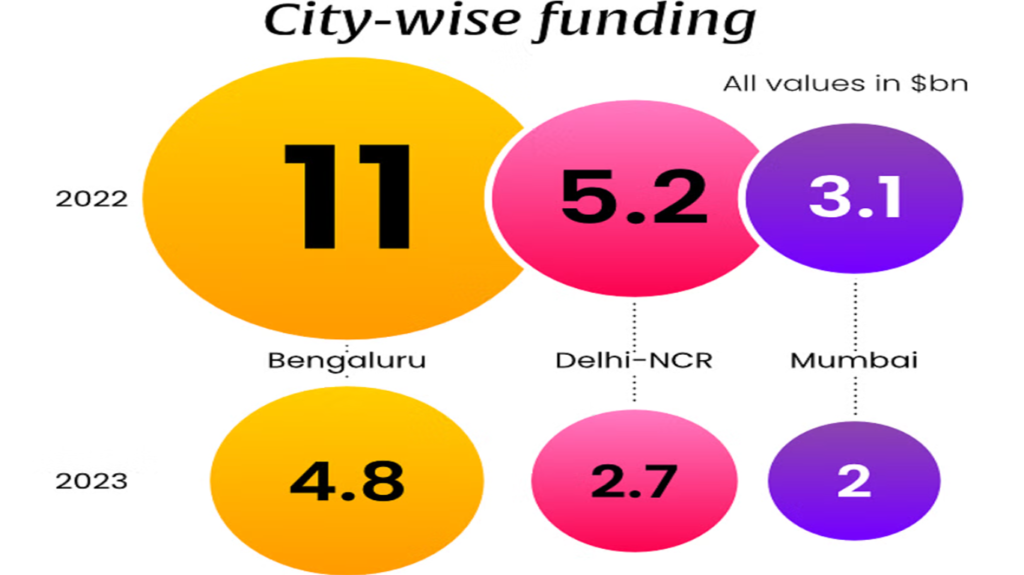
Bengaluru and Delhi had far higher levels of investment ($1.5 billion +) from 160 startup deals in Mumbai in 2023. In 2023, the two aforementioned witnessed over 240 agreements apiece, with investments totaling over $4.8 billion in Bengaluru and $2.7 billion in Delhi.
The disparity is accentuated by the fact that Mumbai had a 62% fall in investments in 2023 year over year, while Delhi NCR saw a 51% decline and Bengaluru witnessed a 61% decline. Already struggling with a lack of capital, Mumbai’s startups appear to have been much more negatively impacted by the previous two years’ fundraising winter.
“The problem is that Mumbai is so well known for Bollywood, banking, finance that it often overshadows the tech community. We are a tight-knit community and we got tired of talking about it and wanted to take some action,” Harsh Jain added.
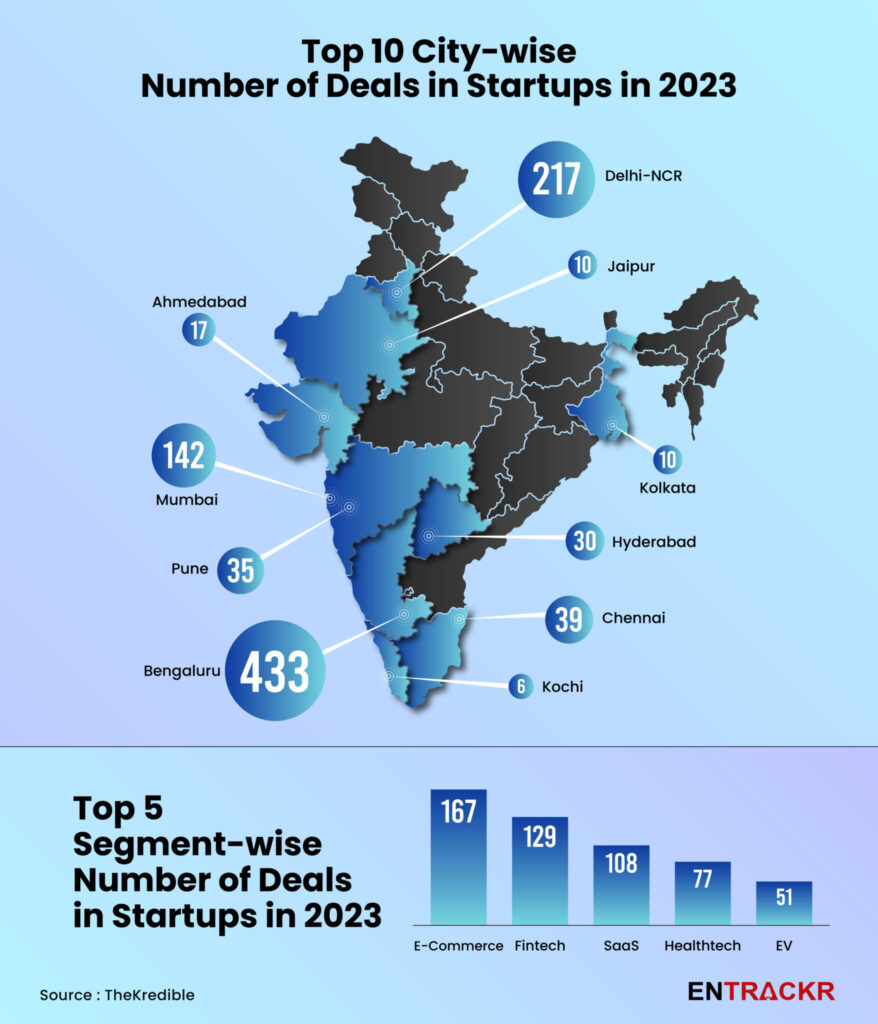
TEAM hopes that the disparity will be addressed with the inaugural Mumbai Tech Week. However, Bengaluru and Delhi undoubtedly have certain benefits over Mumbai.
The main members of TEAM, in addition to Dream11’s Jain, are founders Vaish of Haptik, Hemrajani of BookMyShow, and others. Despite TEAM being a non-profit company, for everyone of them, this is like starting again.
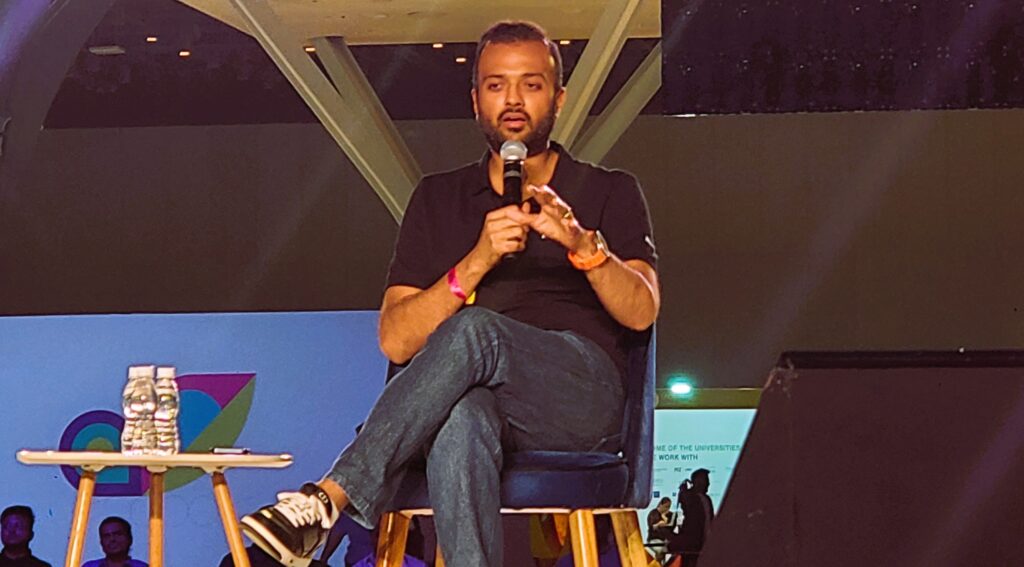
As Jain says, “It is like building a startup. We are fighting for funding, and burning our own money right now. For me, TEAM is a startup with a lot of family and friends as angels. Except these angel investors are unicorns.”
Speaking about the inception of MTW, Harsh Jain, Co-founder & CEO, Dream11, and TEAM founding member said: ”Mumbai’s tech sector is not in the limelight as real estate, finance and Bollywood. Mumbai Tech Week is here to celebrate and bring a spotlight on Mumbai’s thriving tech ecosystem and create awareness about some of the amazing work by tech entrepreneurs and companies.”
The purpose of the event is to address the financial mismatch that has impacted startups in Mumbai by showcasing the best innovators in the fintech sector. Mumbai is well-known for its banking, financial, and Bollywood scenes, which sometimes eclipse the city’s IT scene.
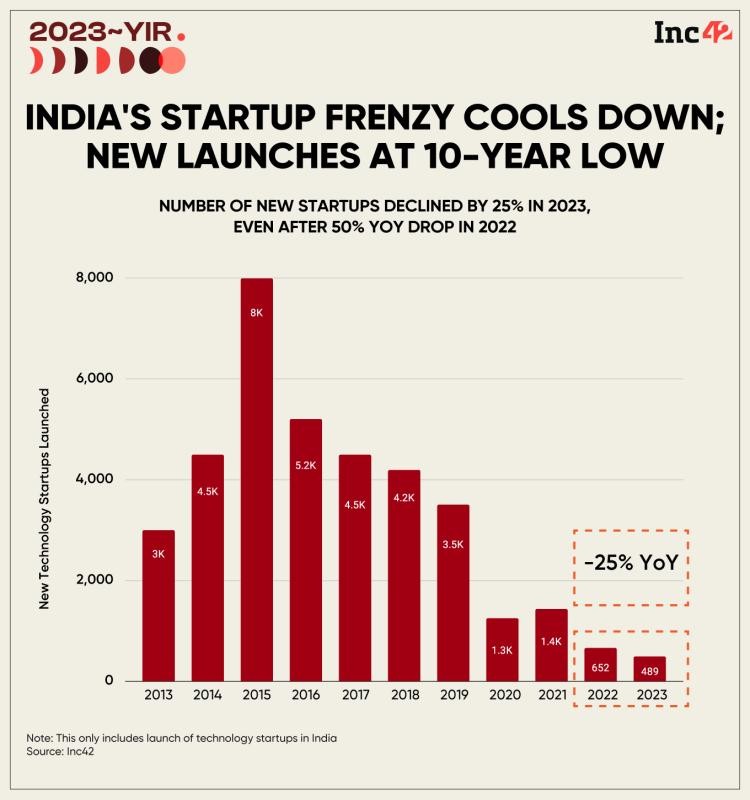
Mumbai has a well-established startup ecosystem that offers a “start to finish” environment for entrepreneurs. Startups in Mumbai can benefit from early-stage funding opportunities, and as they grow, they can leverage private equity firms for later-stage funding and public listings. Both the National Stock Exchange (NSE) and the Bombay Stock Exchange (BSE) are based in Mumbai, providing a clear path for startups to go public.
The venture capital (VC) ecosystem in Mumbai is robust, with many firms having offices in the city. However, there is room for improvement to bolster this ecosystem further, as it plays a crucial role in supporting startups between early funding and initial public offerings (IPOs). With its strong financial infrastructure and thriving business community, Mumbai is well-positioned to continue supporting and growing its startup ecosystem.
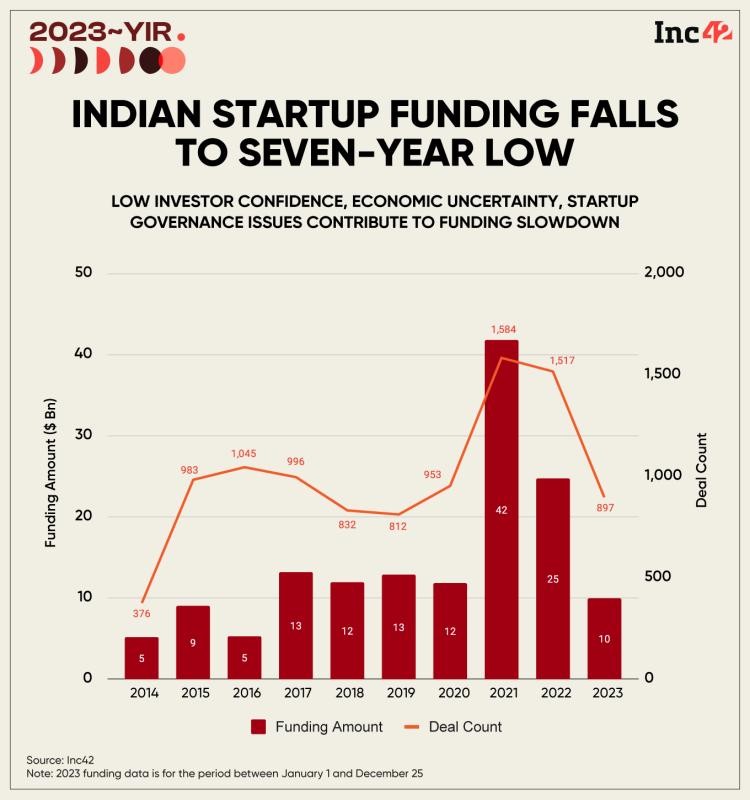
In terms of the quantity of unicorn startups, India is in third place globally. More than 110 unicorns have been generated in India since the first one appeared in 2011. However, almost 60% of these unicorns became such in the last three years, indicating the industry’s rapid surge.
With forty unicorn founders who were either born in the state or had a hometown there, Maharashtra generated the most of these individuals. With 36 founders, Delhi, the nation’s capital, comes in second.
The largest number of Indian unicorns were born in the years 2021, 2020, and 2019, with 45, 11, and 7 unicorns born year, respectively. Globally, COVID-19 has resulted in significant socioeconomic distress; nonetheless, throughout this period, tenacious Indian entrepreneurs have worked tirelessly to support COVID-19 relief operations in addition to the economy. We saw the birth of over ten unicorns in 2020.
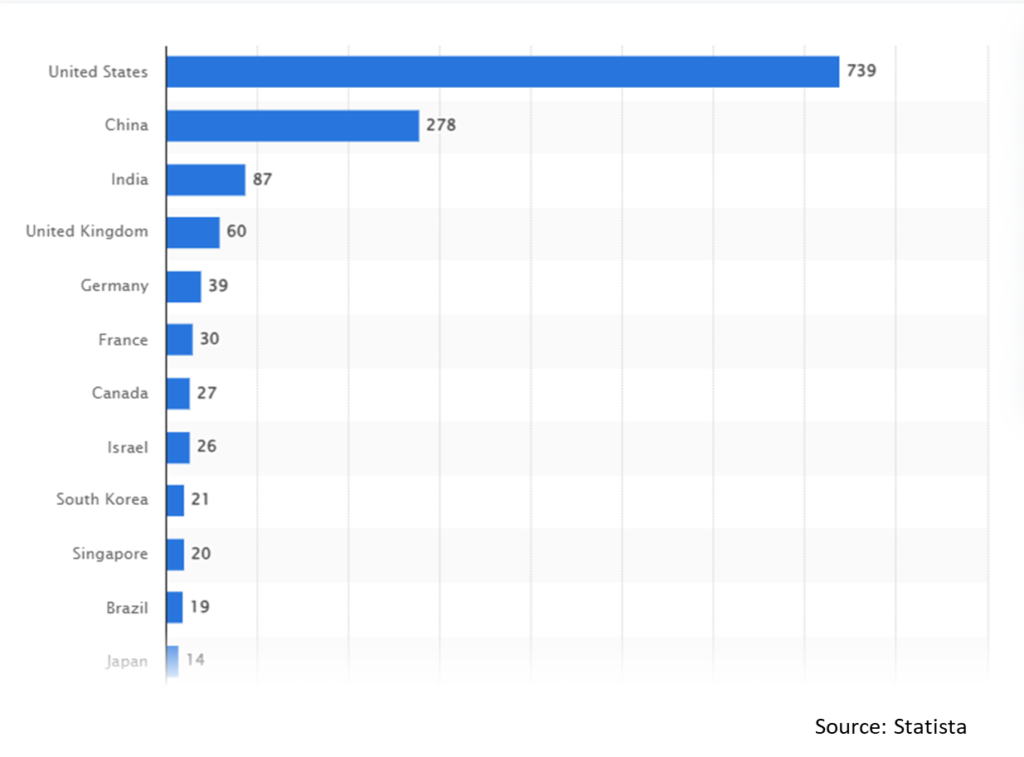
There are now 113 unicorns in India, with a total worth of about $350 billion. According to Inc42’s Indian Tech Startup Funding Report 2023, Indian companies raised $10 billion or more in total in 2023. Nevertheless, there were just two fresh unicorn sightings in the previous year, which is the fewest unicorn sightings in a calendar year since 2017.
Over the past few years, Indian start-ups have had a volatile ride. They saw a dramatic funding high of $50 billion in FY22, but over the next several quarters, they faced a “funding winter” that caused their funding to plummet by 70% to $15 billion in FY23. Sustained funding has been hampered by a number of factors, including the growing cost of capital, rising interest rates, recession in developed nations, fall in the value of technology companies, and slowdown in consumer internet growth.
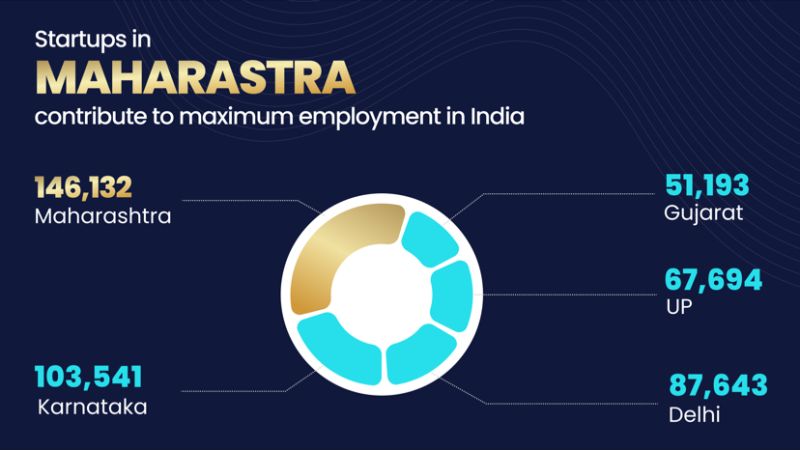
Maharashtra generates around 19% of the overall employment created by startups in India, which amounts to 767,754 in total employment!
In June 2023, the Department of Tourism, the Government of Maharashtra, and the Tech Entrepreneurs Association of Mumbai (TEAM) inked a Memorandum of Understanding (MoU) for the innovative ‘Mumbai Megapolis Metaverse’. The purpose of this project is to exhibit current infrastructure advancements and envision the digital twin project’s transformation of the Mumbai Metropolitan Region (MMR) by 2025.
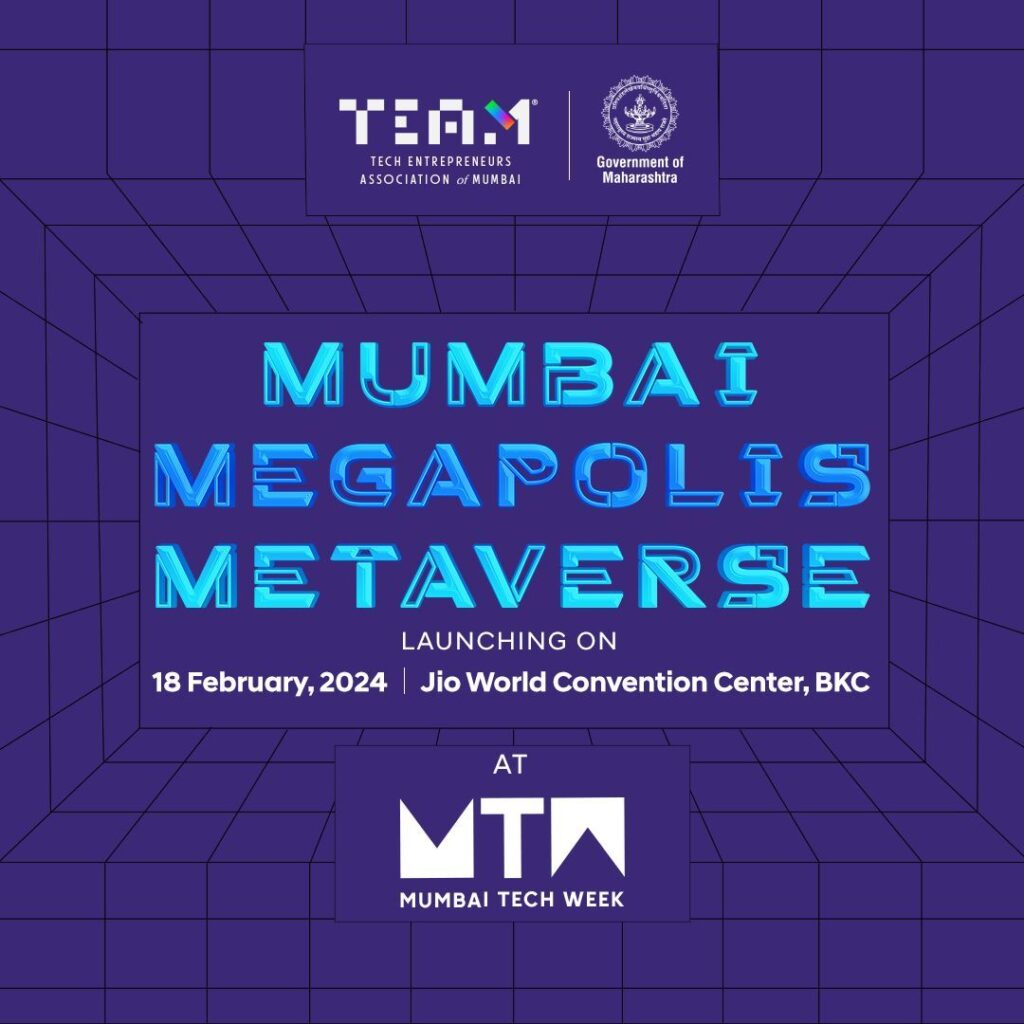
Mumbai’s transformation, according to Deputy Chief Minister Devendra Fadnavis, is essential to India’s progress and prosperity. He announced the inauguration of the ground-breaking Mumbai Megapolis Metaverse, the largest application of Metaverse in urban government globally, and said that the ambitious infrastructure projects will change Mumbai’s character, making it more affordable and livable and transforming it into a city of dreams. It is a major step towards Dy. CM Devendra Fadnavis’s Maharashtra@75 agenda and will transform urban administration.
Dy. CM Fadnavis announced that Maharashtra would accomplish its ambitious objective of becoming a trillion-dollar economy by 2028–2029 and stated that the transformation of Mumbai is essential to the growth and development of India.
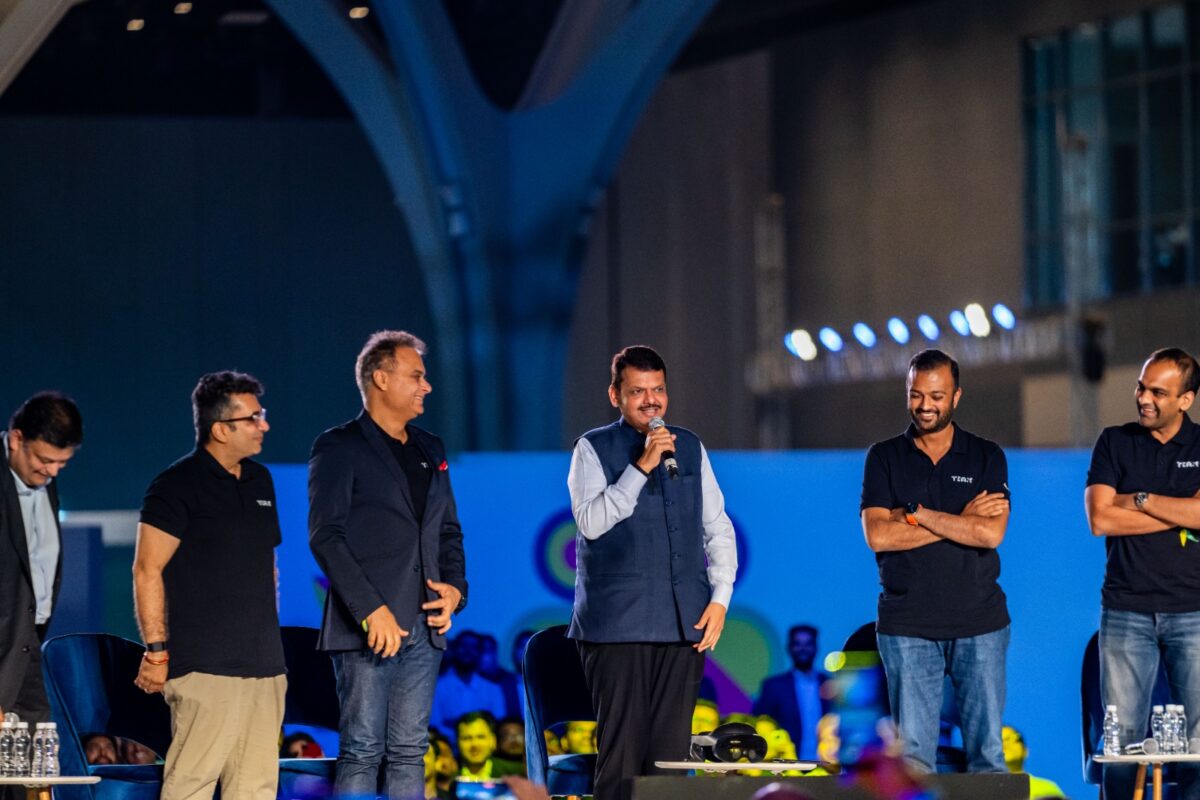
Fadvanis said that Mumbai has experienced a number of infrastructure developments in the last few years, including the construction of a new airport and extensive road construction, aimed at cutting down on travel times from the suburbs to the city’s main commercial districts.
According to the deputy chief minister, these infrastructural initiatives could propel Mumbai’s mobility ahead of that of other metropolises in the area. Nevertheless, the high expense of living in Mumbai relative to other large metropolises remains one of the city’s main issues, and these developments do not address it.
“Many more investments in technology are coming in. There are two or three very big technology companies that are coming to Maharashtra,” the deputy CM added, without revealing the names.
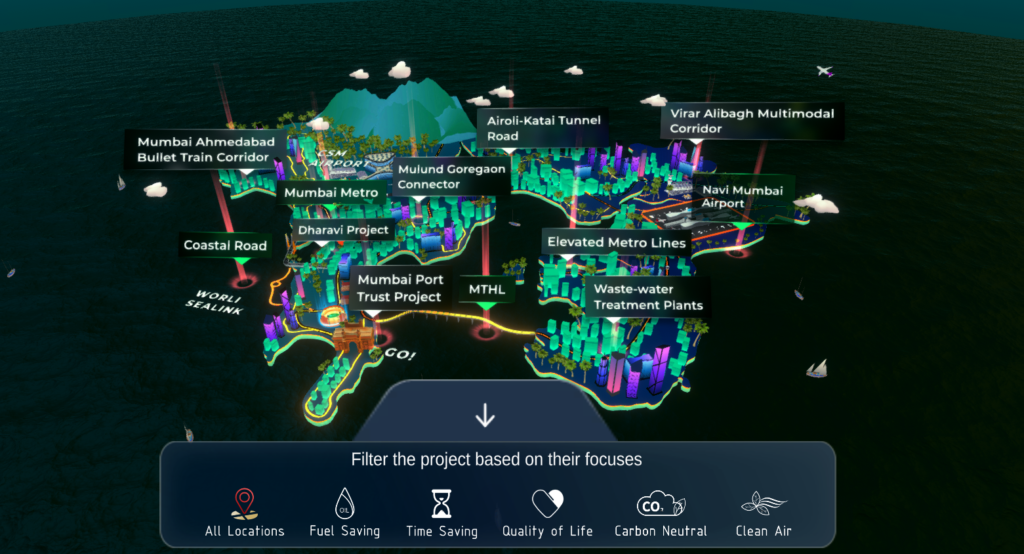
Fadnavis stressed the importance of infrastructure in providing an advantage over other cities, particularly Bengaluru and Hyderabad, in the technology industry with regard to investments and job opportunities. He claimed that, in the IT industry, Mumbai continues to be the nation’s startup hub, followed by Pune.
With the launch of “The Mumbai Megapolis Metaverse,” a digital twin of the city, Fadnavis showcased the progress of several ongoing projects, including the Coastal Road project, the Atal Setu, or Mumbai Trans Harbour Link, and the airport in Navi Mumbai, which is scheduled to open by the end of the year.
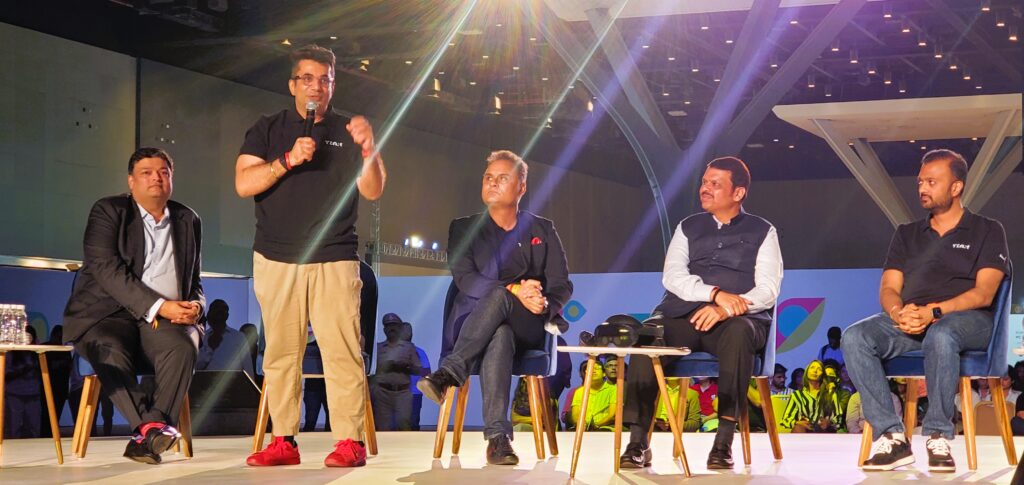
Fadnavis revealed his vision for Mumbai and how it was conceptualized. “When I became the Chief Minister in 2014, I realized, talking to entrepreneurs and business heads, that Mumbai had become congested, unaffordable, and lacked world-class infrastructure. I got two opinions- one set wanted us to invest gradually and the other asked for a quantum leap. We decided to go with the second option. Between 2015 and 2019, as much as 30 billion dollars worth of projects were started,” Fadnavis said. In order to guarantee east and west connection in the MMR, Fadnavis reaffirmed his government’s commitment to finishing a 375-kilometer metro project. “The underground tunnels will serve a twin purpose of operating metro rails and cars/buses.”
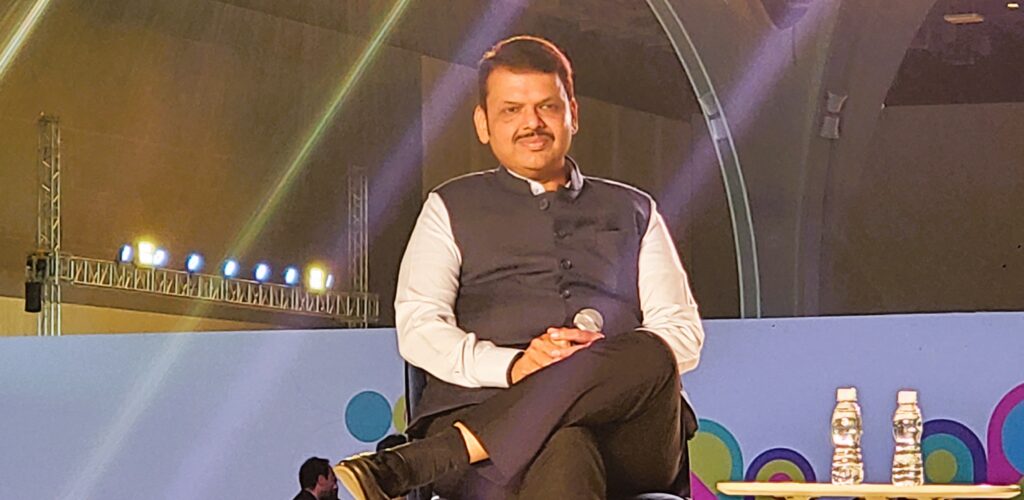
He emphasised that the Mumbai Trans Harbour Link (MTNL), also known as Atal Setu, is a game-changer that, coupled with Navi Mumbai and an international airport, has created a third city—three times larger than Mumbai—a reality. According to Fadnavis, the Coastal Road’s finished first phase would shortly be opened.
According to Fadnavis, the ongoing initiatives would guarantee the quickest connection in addition to helping to relieve traffic in Mumbai. According to him, the goal was to guarantee that everyone arrived at their destination in less than fifty-nine minutes. He said that when the metro network is operational, up to nine million passengers would be able to commute in about the same amount of time as the current local rail network.
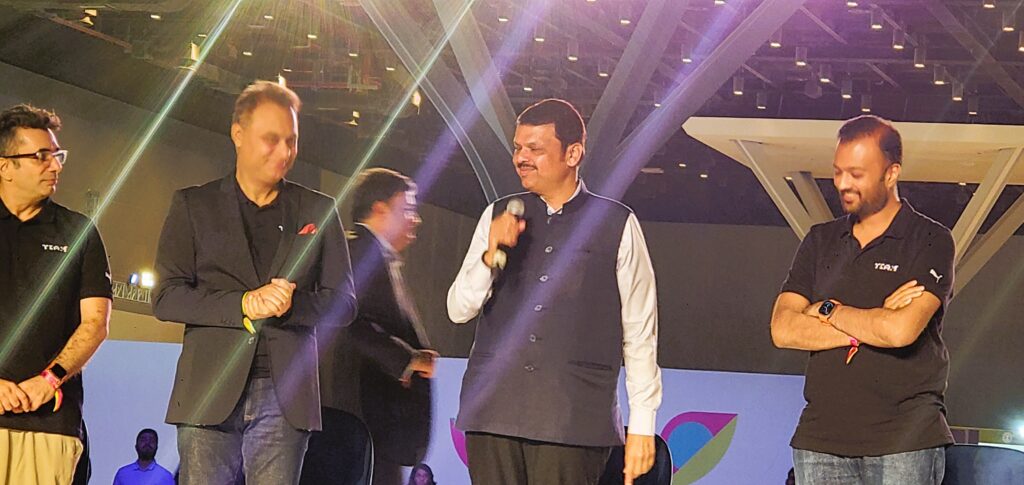
Mumbai would outpace all megalopolises by at least five years with the sort of infrastructure projects we are doing, Deputy Chief Minister Devendra Fadnavis stated on Monday. Fadnavis introduced the Mumbai Megapolis Metaverse while giving a speech at the Tech Entrepreneurs Association of India event in Mumbai.
“We are building a corridor around Mumbai. Look at it like this- we have a Bandra Worli Sea Link, Coastal Road that connects Worli to Nariman Point, and we are now in the process of building connectivity from Bandra to Versova, to Uttan to Virar on the western side We are also also building connectivity to Alibaug with Atal Setu. Soon, we can go from anywhere to anywhere in the Mumbai Metropolitan Region within 59 minutes,” Fadnavis said. Expounding on the Mumbai Metro project, Fadnavis said that a total of 375 km network was envisaged, of which 50 km was already operational while 50 km will be added very soon and the next 50 km will be operational in the six months after that. “Compare this to an 11 km Metro line that was built in 11 years. At present, Mumbai’s Suburban railway network carries approximately 9 million passengers every day. When completed, the Mumbai metro network will be carrying 9 million people additionally,” Fadnavis said.
“Mobility-wise Mumbai will be an entirely different city in the next five years. It will be ahead of every other city, it will be out of Bengaluru, Hyderabad, Delhi, and Chennai,” highlighted Fadnavis.
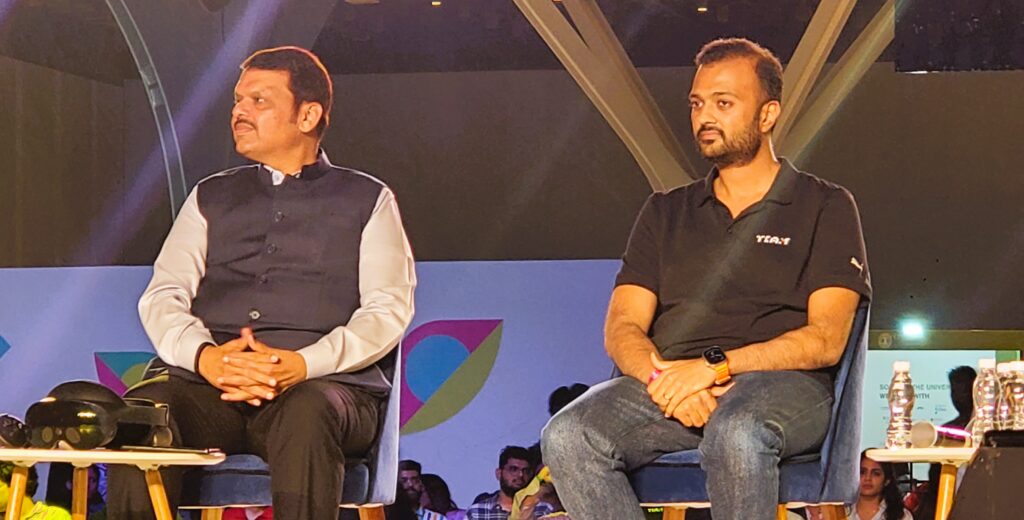
On not having any large tech parks frequently coming to Hyderabad or Bengaluru, let alone Mumbai or Maharashtra. Why is it that Bengaluru and Hyderabad always receive the majority of venture capital funding even if we have the most companies and unicorns?
Fadnavis said that this would change soon in the coming years. “Amazon has made investments into one of their biggest data centers in Navi Mumbai. Google has started its office in Pune and we entered into an MOU for an AI project. We are in talks with three-four more global giants but I won’t reveal their names as we have huge competition. But in the future, you are going to hear more soon. Companies only want good governance and we are providing that,” Fadnavis said.
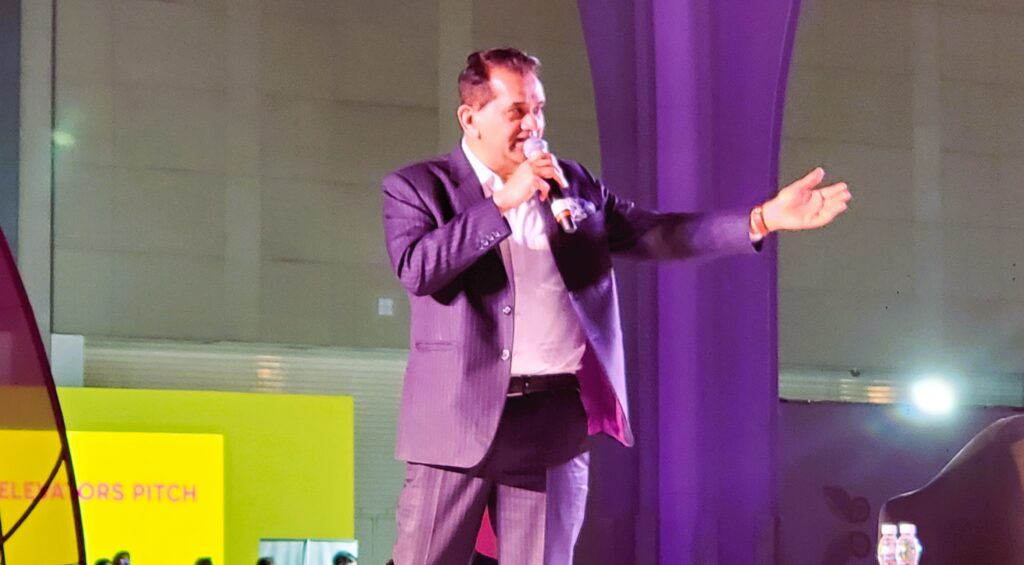
India’s G-20 Sherpa and former CEO of NITI Aayog, Amitabh Kant, stated at Mumbai Tech Week (MTW) that the country has to develop at a rate of 9–10 percent for three decades and continuously innovate to become a USD 35 trillion economy by 2047.
India wants to overtake Germany and Japan by having a GDP of USD 35 trillion by 2047. Various industries, such as digital identification, start-ups, artificial intelligence, logistics, health, and education, require constant innovation and disruptions. A vital role for young entrepreneurs is played in population-scale innovation. Amitabh Kant, the former CEO of NITI Aayog Aayog, said that India had leapfrogged ahead of other nations in technology and has given rise to 1.4 billion digital identities.
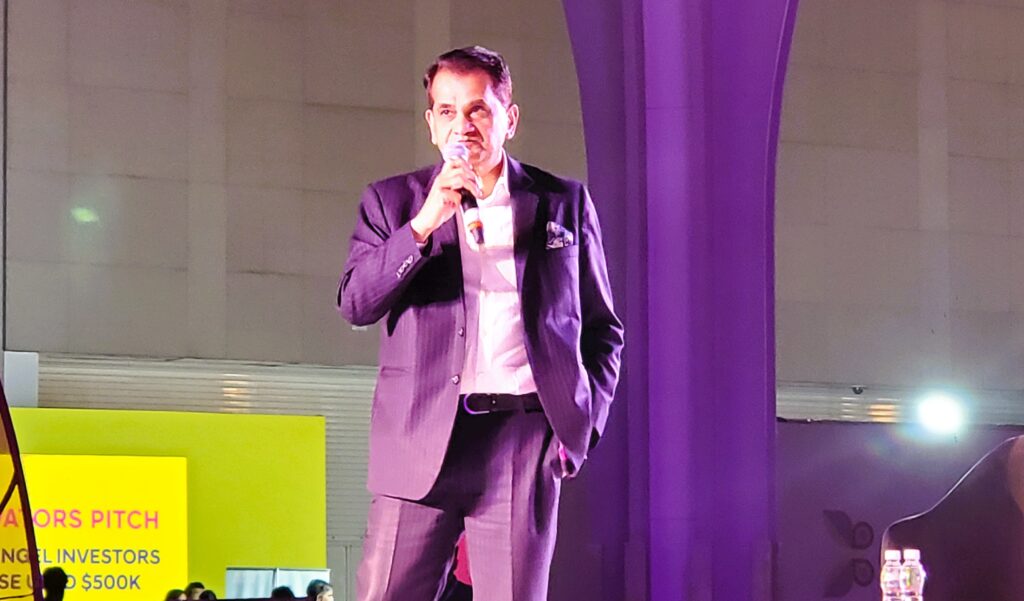
“We are the fifth largest economy in the world and by 2027 we will surpass Japan and Germany to become the third largest economy in the world. And our aim is by the time we turn 100 in 2047, India should be a USD 35 trillion economy,” Kant said while addressing a session at Mumbai Tech Week (MTW) hosted by Tech Entrepreneurs Association Mumbai (TEAM). Thus, according to Kant, India’s economy will grow to become the second biggest in the world.
Kant emphasised the need for disruptive approaches and innovation to advance India’s economic trajectory. He applauded India’s efforts in helping its 1.4 billion residents create digital identities, pointing to technical leapfrogging as a major facilitator. Young entrepreneurs should concentrate on fields like artificial intelligence, logistics, health, and education as the government has liberalised policies that promote start-ups in these and many other sectors.
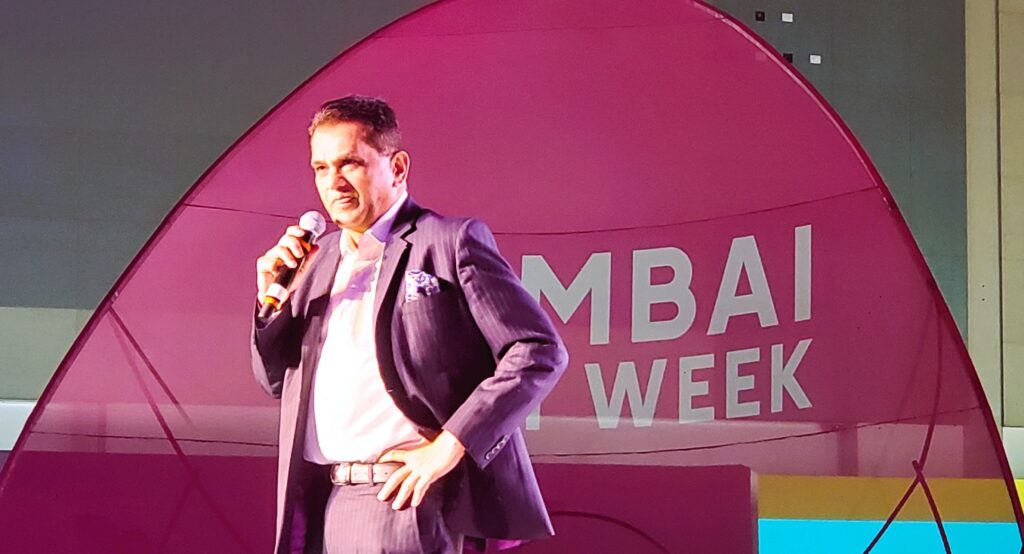
“What India is doing is innovating at population scale and we are at the beginning of a huge disruption because we are the youngest country in the world and our average age is 29. Even when we are 100 our average age will be 33 and we will provide 31 per cent of the skilled manpower to the rest of the world,” he added. India is positioned for transformative growth, utilising its youthful population and technology capabilities to fulfil its ambitious economic agenda, with an emphasis on innovation at scale.
India is positioned for transformative growth, utilising its youthful population and technology capabilities to fulfil its ambitious economic agenda, with an emphasis on innovation at scale.
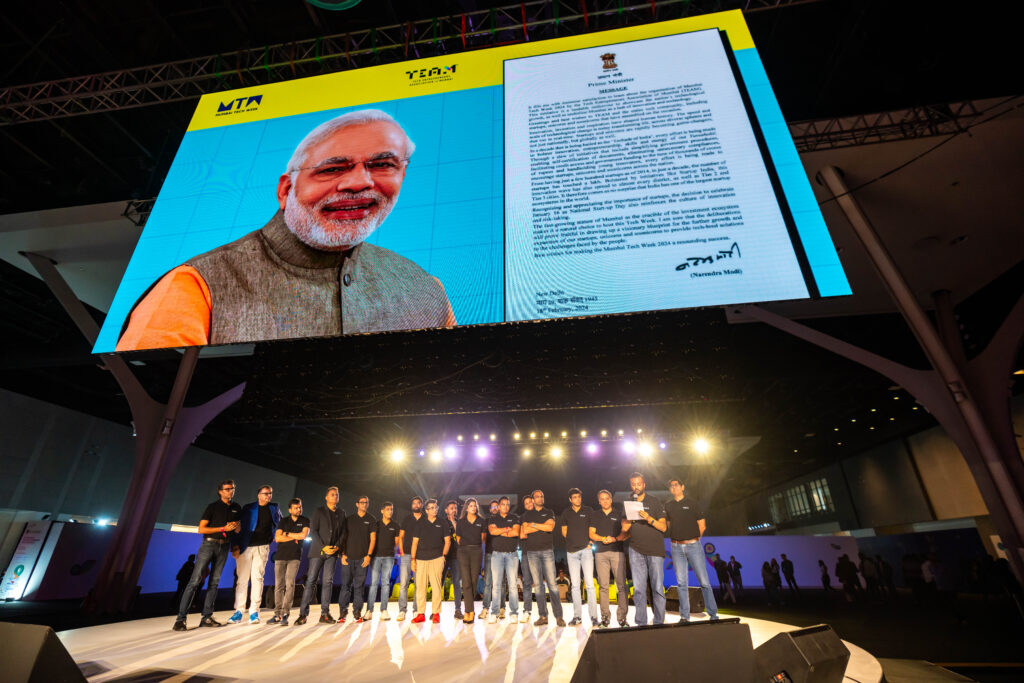
Tech Entrepreneurs Association of Mumbai (TEAM) is honoured to receive a heartfelt compliment letter from the Hon’ble Prime Minister of India, Shri Narendra Modi, on the occasion of the launch of the MUMBAI TECH WEEK 2024.
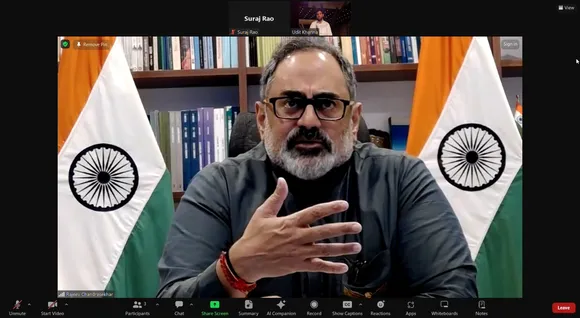
Rajeev Chandrasekhar, Minister of State, Meity, Government of India, discussed in a thought-provoking session with Anant Goenka, Executive Director, The Indian Express Group, the critical role that technological advancements and the entrepreneurial spirit play in guiding India towards greater prosperity and development. The Minister discussed how the government is regulating the tech industry, highlighting a collaborative, open, and transparent strategy.
Union Minister of State for Electronics and Information Technology, Jal Shakti, and Skill Development and Entrepreneurship, Shri Rajeev Chandrasekhar provided clarification on the regulatory environment, highlighted the revolutionary strategy of the Narendra Modi Government, setting it apart from other administrations that failed to appropriately regulate vital industries like telecommunications.
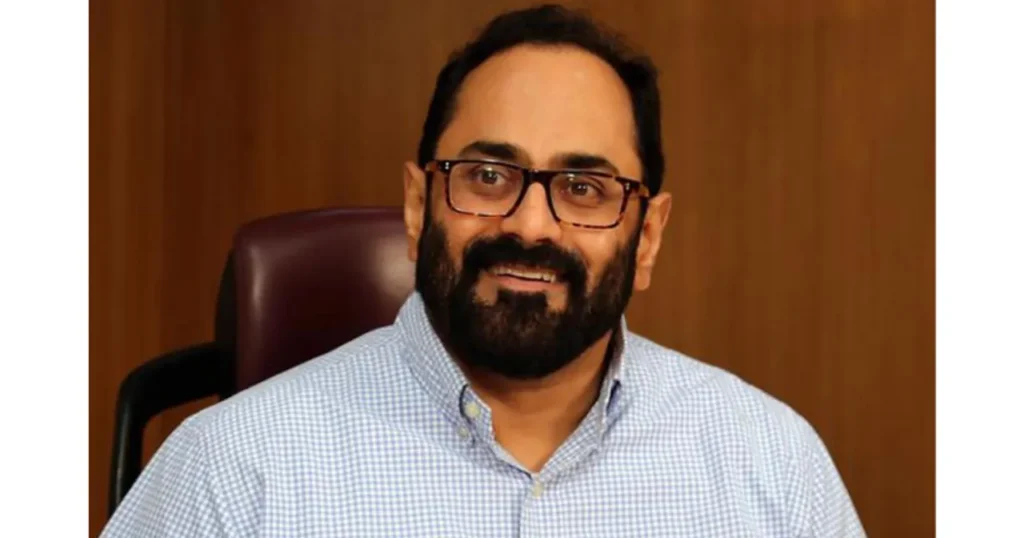
Speaking on how India’s standing in the world is changing in comparison to China, especially in the semiconductor industry, Minister Chandrasekhar pointed out a big change in pace.
“There is a trend today that, in terms of China, the momentum they had over the last decade in the areas of emerging and high tech, is slowing down and becoming blunter because of all the export control regimes being put against them. They are certainly not viewed as a trusted partner in the future of tech. I can confidently say that India is reversing the missed opportunities of the past 75 years. We have today two full-blown fabs, with $10 billion fab investments coming into the country after decades. We are also partnering with the best partners for technology for the future of semiconductors. So, along with the design innovation ecosystem on semiconductors, which is going to design the next generation chips and devices, we are also launching India Semiconductor Research Centre which is going to be a state of the art research center where the world’s biggest semiconductor makers will research in India,” the Minister added.
Chandrasekhar stated, “Our approach to creating a framework of regulation has been open, transparent and consultative. It is not so much about government regulation as it is about all of the stakeholders coming together and creating the guardrails that are important for the orderly growth of any segment of our economy. We are also partnering with the best partners for technology for the future of semiconductors. So, along with the design innovation ecosystem on semiconductors, which is going to design the next generation chips and devices, we are also launching India Semiconductor Research Centre which is going to be a state-of-the-art research centre where the world’s biggest semiconductor makers will research in India.”
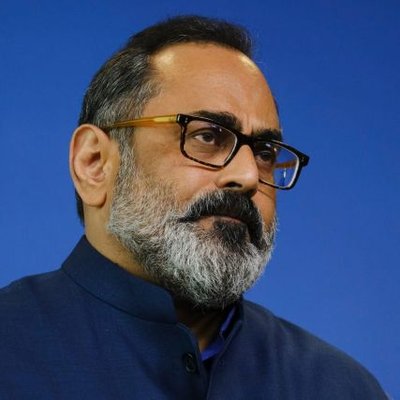
Chandrasekhar restated the government’s plan to fully use AI, not just to compete with innovations like ChatGPT but also to have an influence on drug development, agriculture, government services, and healthcare. The emphasis will also be on education, with programmes designed to accommodate various Indian languages and databases.
Shri Rajeev Chandrasekhar said, “we intend to exploit AI to its fullest for achieving the goals of our economic growth, ensuring that AI makes a big impact on healthcare and drug discovery, as well as on agriculture and farmer productivity. Use cases are not about having bragging rights to compete with ChatGPT. That is not the direction we are going in. We will also go ahead and support education and there will be a focus in multiple languages of India, and multiple datasets.”
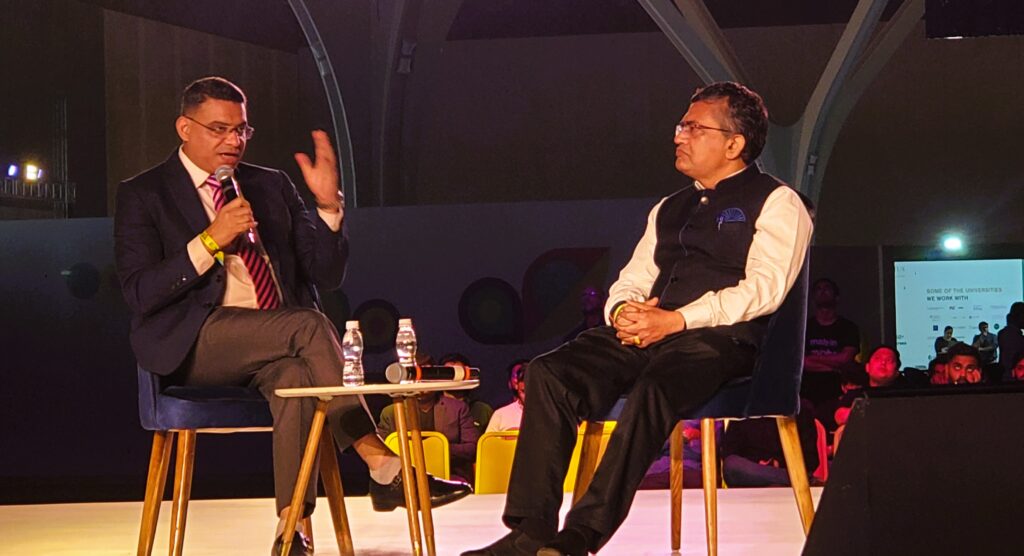
Chauhan explored the revolutionary changes that have occurred in the Indian investment scene. By highlighting the role that technology plays in bridging the gap between potential investors and the financial sector, their conversation illuminated ways to democratise investing options for the Indian masses.
There are 80 million distinct accounts on the NSE when duplicates are eliminated, out of 160–170 million total accounts. According to Chauhan, these investors are really 50 million distinct families, or 17% of all Indian households.
Due to expanding mobile phone penetration and the growing appeal of trading applications, the number of unique investors in the Indian stock market is continuously increasing.
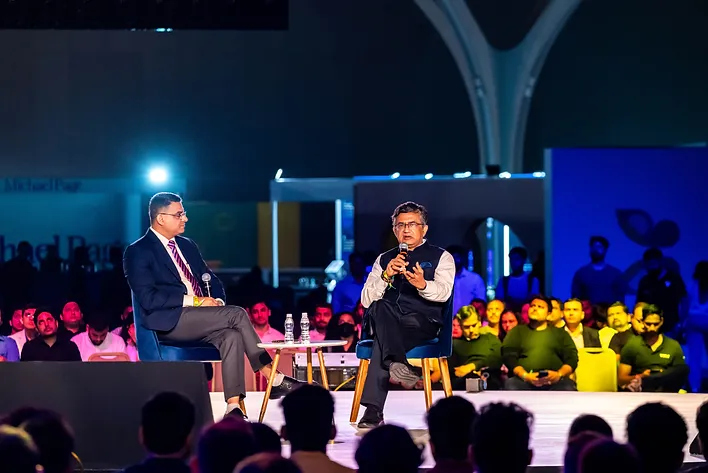
We’re on track to hit $30 trillion in GDP and $50 trillion in market capitalization in the next 25 years: NSE’s Ashish Chauhan. If India’s market capitalization is to reach $50 trillion by 2047, it will mostly rely on youthful, tech-driven startups.
Chauhan underscored the significance of harnessing technology and cultivating an innovative culture within the financial sector to propel expansion and efficacy. He talked on how the financial industry has to become digital and how technology can help make finance more accessible and inclusive.
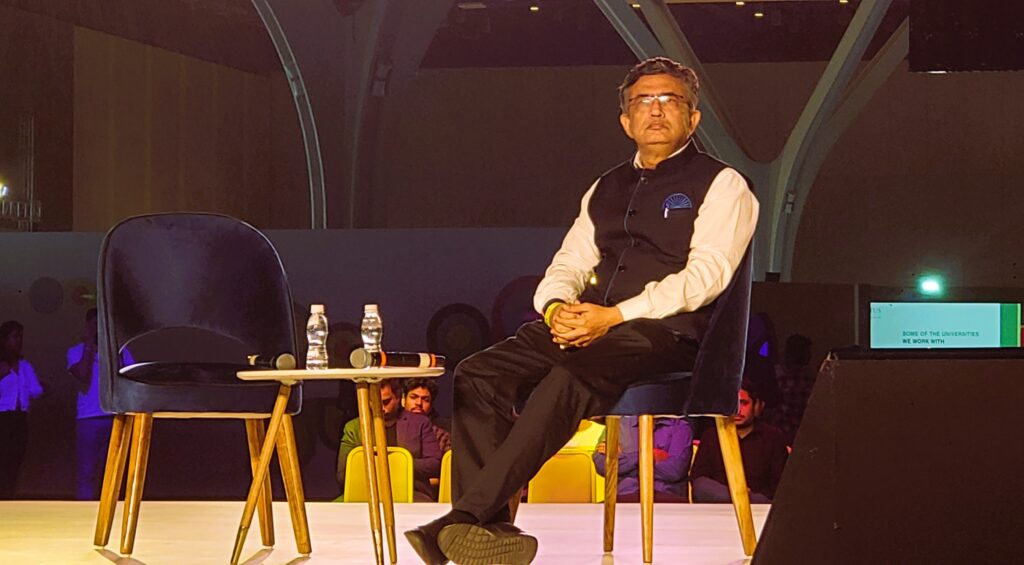
In terms of daily orders and trade volume, we are currently the largest exchange in the world by miles. We would be doing between 30 and 50 percent of all transactions worldwide on a daily basis if all of our activities were combined. When one is a regulator, market share is not something that comes to mind.
Ashish Chauhan, MD & CEO, NSE, says “although we were the pioneers of automated trading and the rest of the world became automated later on, they have gone for literally 24 hours trading. We have remained with 6 hours 15 minutes trading but that is besides the point. As and when people feel comfortable of extended hours in the stock markets, we will do it. We are not in a hurry.”
In general, I believe that technology creates wealth, and since India is quickly emerging as the global hub for technology, a significant portion of the new wealth will be generated there. Additionally, the way technology has been used in all spheres of life, including government, over the past ten years has created an ecosystem and given people confidence that we are a tech nation and that new wealth will be generated through technology. We have already, in rough terms, hit $4.5 trillion.
In order to safeguard investor interests and the integrity of financial markets, Chauhan emphasised the significance of cybersecurity and the necessity of strong security measures.
He emphasised that in order to shape the financial sector’s future and spur innovation, cooperation between industry players, regulators, and legislators is crucial.
Chauhan’s insights into the Indian investment landscape shed light on the significant changes taking place, driven by technology and innovation. The democratization of investment opportunities is making it easier for the masses to access and participate in the financial market. Key factors contributing to this transformation include:
Digital platforms: The emergence of user-friendly investment platforms has made it easier for individuals to invest in stocks, mutual funds, and other financial instruments without relying on traditional financial institutions.
Financial literacy: Growing awareness and education about personal finance and investment strategies are empowering individuals to make informed decisions about their financial future.
Government initiatives: Policies and programs aimed at promoting financial inclusion and economic growth are fostering a more inclusive investment ecosystem.
Rise of fintech: Innovative fintech solutions are addressing traditional barriers to investment, such as high fees and limited access to information.As a result of these shifts, the investment landscape in India is becoming more diverse and dynamic, opening up new avenues for wealth creation and economic growth.
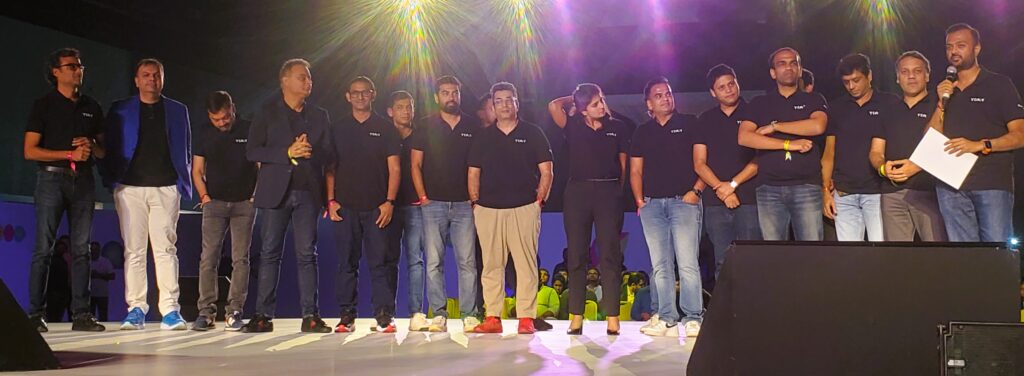
Tech Entrepreneurs Association of Mumbai (TEAM) is a non-profit, independent industry association formed with the mission of advancing the tech ecosystem of Mumbai. Formed by some of the city’s most successful tech founders, TEAM is on a mission to promote Mumbai as the hub for tech entrepreneurship.
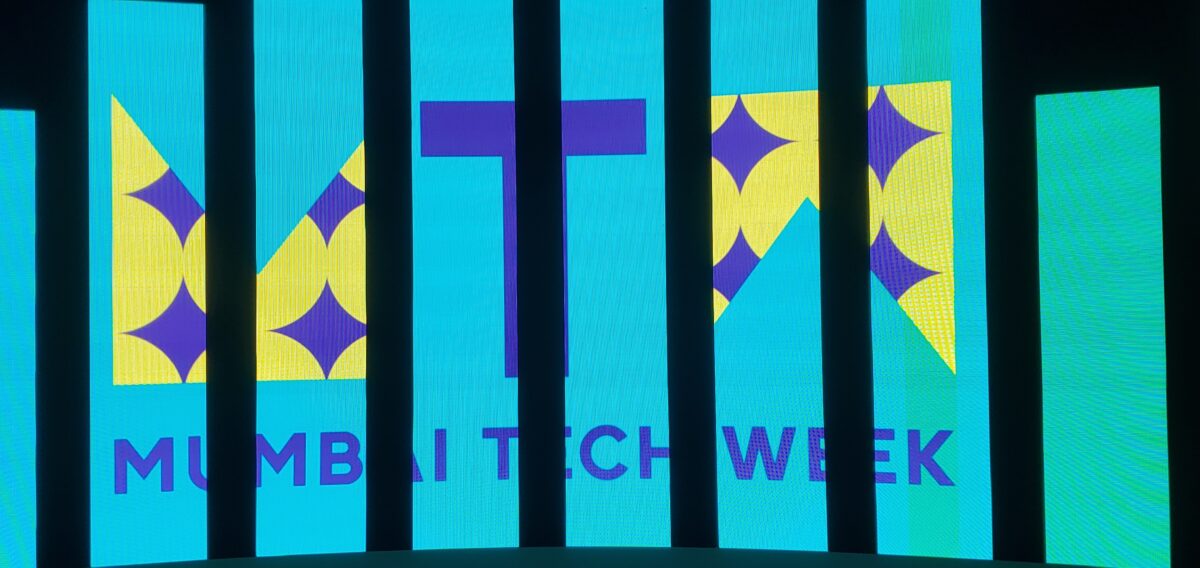
The 45 TEAM member companies are – BillDesk, BookMyShow, Chalo Mobility, CitiusTech, CleverTap, Dezerv, Dream11 (Dream Sports), Drip Capital, Eruditus, Fino Payments Bank, Fractal Analytics, FlexiLoans, Games24x7, GetVantage, GOQii, Gupshup, Haptik, Hungama, Infibeam Avenues, LEAD School, Loco, LogiNext, LoveLocal, Mosaic Wellness, Nazara Technologies, Netcore Cloud, People Group (Shaadi.com), Pepper Content, Pepperfry, PharmEasy, Pine Labs, Prismforce, Purplle, Quantiphi, Rebel Foods, Route Mobile, Servify, The Good Glamm Group, The Souled Store, Turtlemint, upGrad, Upstox, WebEngage, Zepto, and Zeta.
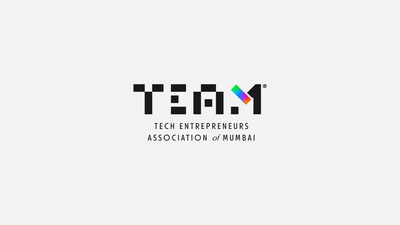
TEAM provides resources, networking opportunities, and support to tech startups in the city. It is the voice for advocating policies and engaging with the government to help Mumbai’s tech ecosystem thrive. With the aim to drive innovation and unleash its full potential, TEAM helps Mumbai’s tech enterprises synergize, collaborate, and support to break barriers and achieve greater things. The goal of MTW is to become the yearly assembly of the tech community that highlights Mumbai’s technological capabilities and future prospects, presents tech leaders in their most genuine light, and expedites interaction through a variety of interactive forms
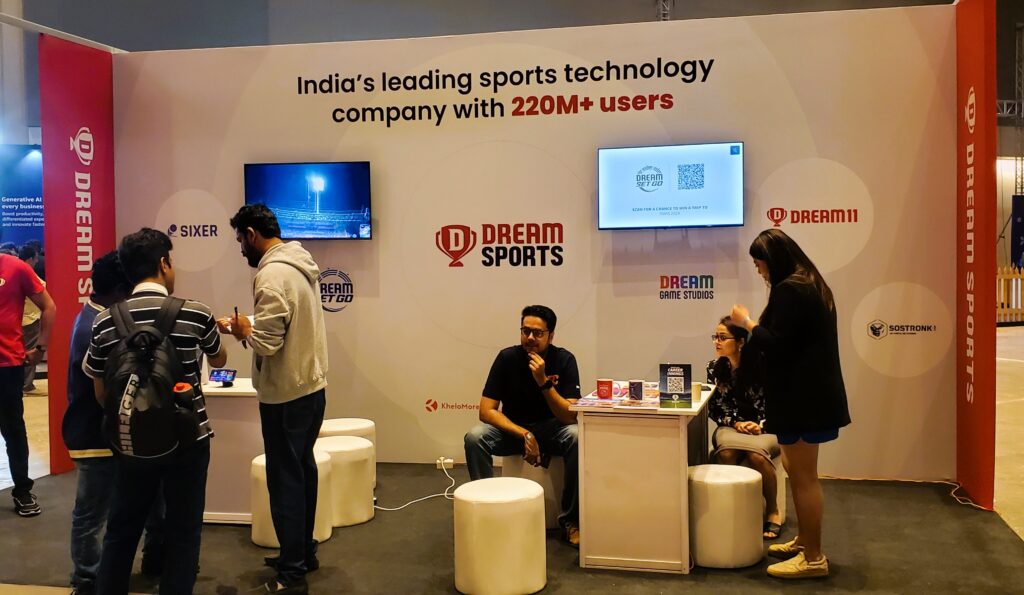
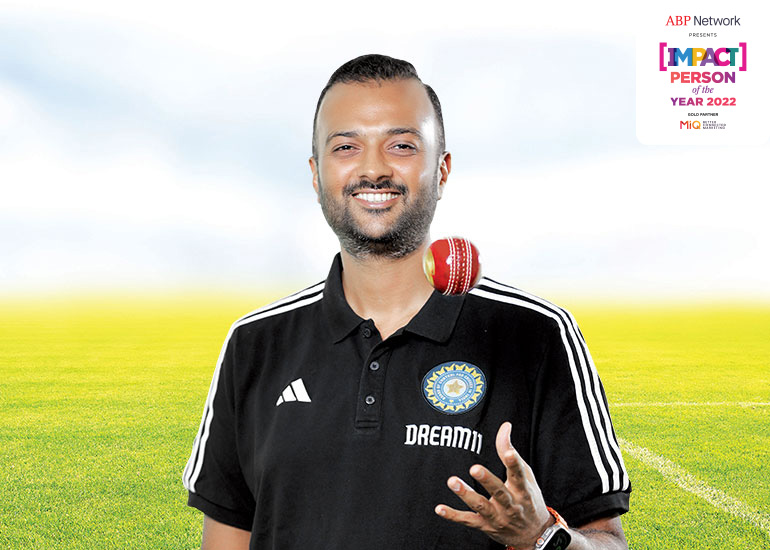
Dream11 is the world’s* largest fantasy sports platform with 100 million+ users playing fantasy cricket, football, kabaddi, basketball, hockey, volleyball, handball, rugby, futsal, American football & baseball on it. A homegrown Indian brand, Dream11 helps Indian sports fans to actively engage with real-life sporting activity and showcase their knowledge of sports. Fantasy sports has been deemed a ‘Game of Skill’ by the honorable Supreme Court of India.

FanCode, Dream Sports’ (https://www.fancode.com/), first multi-sport aggregator platform in India, has introduced “FanCode Shop,” an online sports fan merchandise store that offers convenient access to a variety of genuine and reasonably priced fan apparel from top sports companies. The official licenced gear of India’s largest domestic sports companies, the six IPL teams (Delhi Capitals, Sunrisers Hyderabad, Mumbai Indians, Chennai Super Kings, Rajasthan Royals, and Kings XI Punjab), is available at the FanCode Shop.
The FanCode Shop will offer a wide array of fan merchandise that includes official match jerseys, t-shirts, jackets, joggers, caps, masks, phone covers, coasters, keychains, wristbands and much more.


Dream11, the biggest fantasy sports platform globally, has partnered with PUMA, a well-known sports brand, to introduce its inaugural athleisure line in India. The two elite athletes collaborated to produce an exclusive line known as PUMAxDream11. T-shirts, flip-flops and hats are among the clothing options that will be offered online at FanCode Shop (https://www.fancode.com/shop), select PUMA locations and PUMA.com. The designs under the PUMAXDream11 collection are branded under the campaign theme ‘Dream It. Own It’.

GOQii, established in 2014 by pioneering entrepreneur Vishal Gondal, is a revolutionary company dedicated to transforming preventive healthcare worldwide. Through its innovative Smart Health Ecosystem, GOQii combines advanced technology with personalized human coaching, offering a comprehensive and holistic approach to health and wellness.
By seamlessly integrating cutting-edge technology with the expertise of knowledgeable coaches, GOQii empowers individuals to take control of their health, leading to better outcomes and overall well-being. With a steadfast commitment to improving global health, GOQii is redefining the way we approach preventive care and inspiring people to live healthier, more fulfilling lives.

The Builders Club was the community partner and is one of the largest startup founder communities globally with over 75,000 builders helping each other in building great products and businesses. They have 7+ city chapters and have multiple initiatives helping early-stage startups in moving to the growth stage. The Builders Club India chapter is headed by Sohail Khan.
Linkedin: https://www.linkedin.com/company/the-builder-s-club/

The prompt-to-video generator is the newest function that Invideo AI has to offer.
With the help of this cutting-edge application, users may quickly generate a polished movie by entering a brief text prompt. It’s about changing our perspective on content production, not simply about automation. Invideo AI is really pushing the envelope since it can create voiceovers, transitions, and even music in response to a straightforward command.

Nowadays, small company owners don’t need to hire a professional video editor to create eye-catching promotional films. Teachers have the ability to turn lesson plans into visually captivating narratives that can improve students’ learning. Now that they can easily transition from textual content to video, bloggers and influencers—especially those in the fitness and travel niches—can easily boost their reach and engagement by using video to showcase their workouts or excursions.
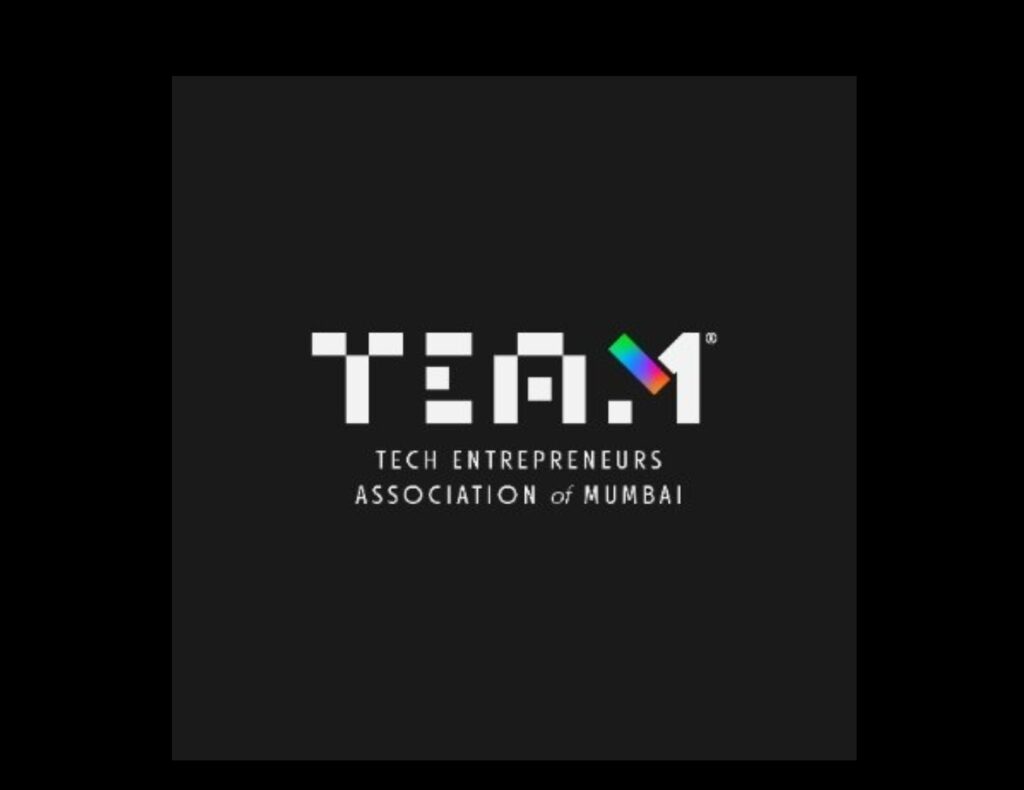
About TEAM:
Tech Entrepreneurs Association of Mumbai (TEAM) is a non-profit, independent industry association formed with the mission of advancing the tech startup ecosystem of Mumbai. Formed by 35 of the city’s most successful tech startup founders, TEAM is on a mission to promote Mumbai as the hub for tech entrepreneurship. Its members include founders from Mumbai-based startups Pharmeasy, UpGrad, Upstox, Haptik, Dream11, The Good Glamm Group, Zepto, Pepperfry, Infibeam Avenues, Pine Labs, BillDesk, CleverTap, LogiNext, Rebel Foods, Purplle, among others.
TEAM provides resources, networking opportunities and support to tech startups in the city. It is the voice for advocating policies and engaging with the government to help Mumbai’s startup ecosystem thrive. With the aim to drive innovation and unleash its full potential, TEAM helps Mumbai’s tech enterprises synergize, collaborate and support to break barriers and achieve greater things.

